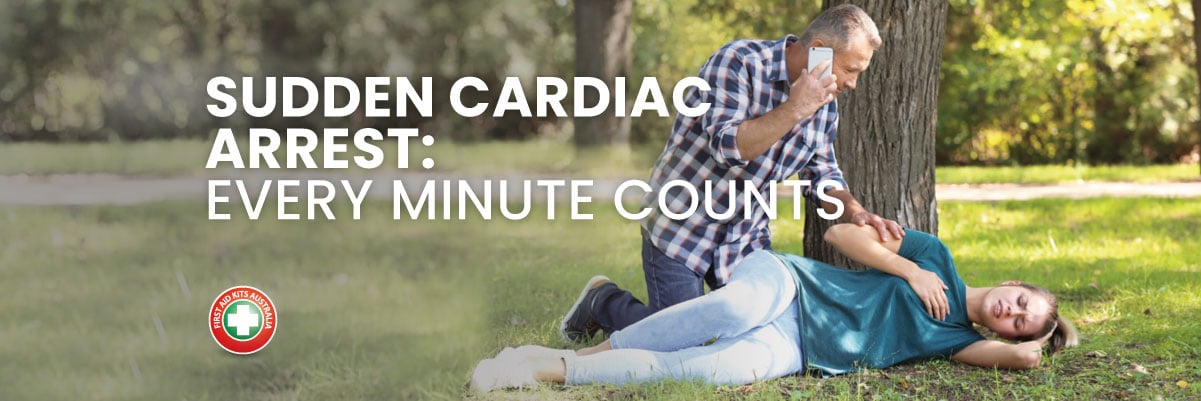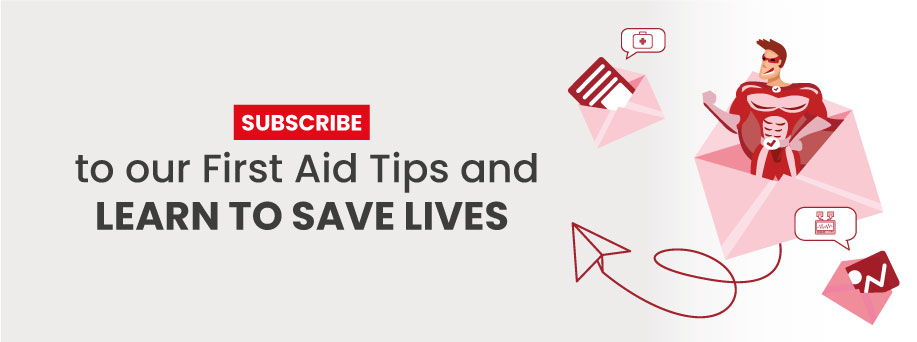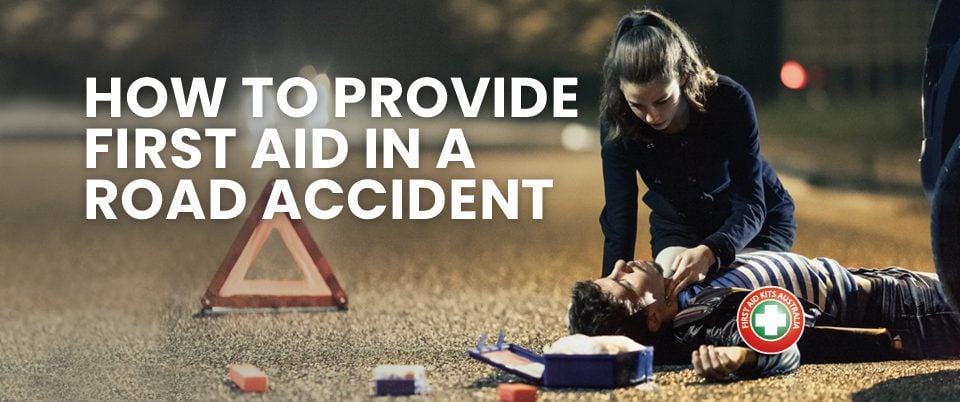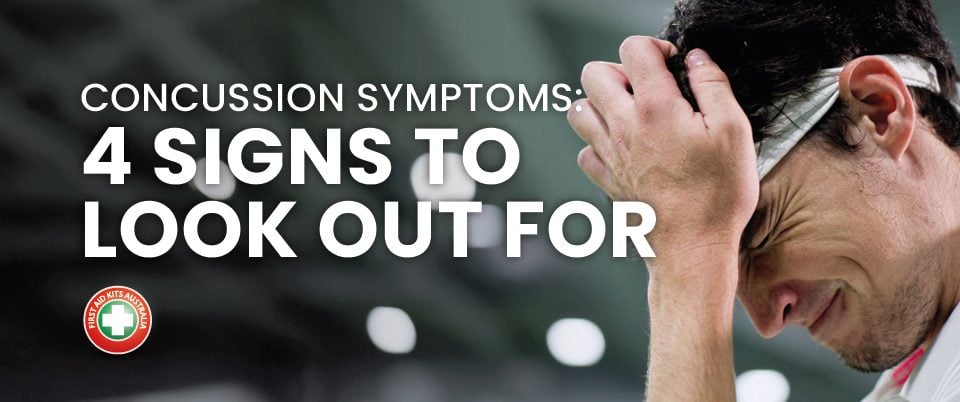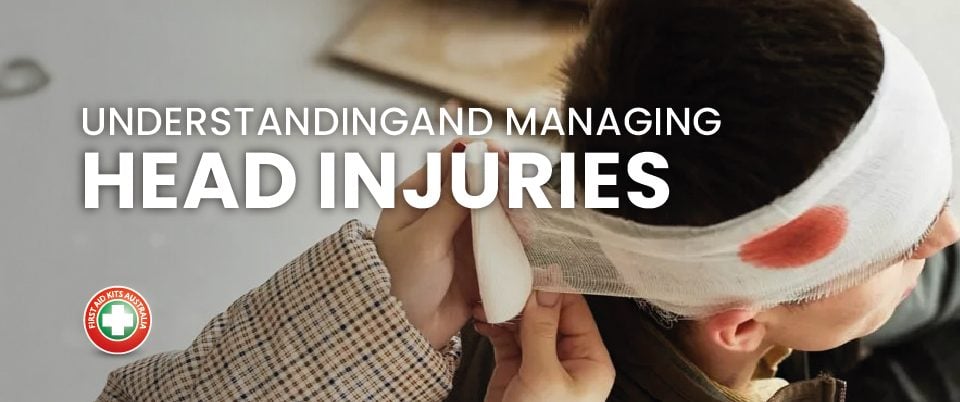
First Aid Tips for the Food & Beverage Industry
23 June 2022
First Aid Tip: Treating Wounds
7 July 2022Only 10% of people will survive if they get help. The good news is that early CPR and Defibrillation can double or triple the chances of survival. So, let’s learn what is Sudden Cardiac Arrest and what you can do to save a life because every minute counts.
What is a Sudden Cardiac Arrest (SCA)?
Within 20 seconds after the heart stops beating, the person collapses, loses consciousness, and stops breathing. This is because without the oxygen and sugars the brain needs to function, it is unable to deliver the electrical signals needed to maintain breathing and organ function. This can lead to brain injury that gets progressively worse if Cardiopulmonary resuscitation (CPR) is not started within two minutes.
Sudden Cardiac Arrest represents a life-treating emergency that, if untreated, can cause death in 10 minutes.
What causes Sudden Cardiac Arrest?
Also, there are certain conditions or events that can lead to a cardiac arrest, such as breathing problems, trauma, drowning, electrocution, or allergic reactions. And sometimes the causes can’t be identifiable.
Can stress or anxiety cause a Sudden Cardiac Arrest?
Stress and anxiety can play a major role in heart diseases. When someone is anxious, their body reacts in ways that can put an extra strain on their heart increasing risk factors such as tachycardia ( a rapid heart rate) or a decreased heart rate variability that can interfere with the heart rhythm and increase the risk of a Sudden Cardiac Arrest.
How to identify a Sudden Cardiac Arrest (SCA)?
- Collapse and fall to the ground
- No pulse
- Abnormal or lack of breathing (gasping for air)
- Loss of consciousness
80% of sudden cardiac arrest that occurs outside of the hospital, will happen at home. Usually, the presentation will be as follows: the person is doing his/her normal routine and suddenly will fall to the ground, have no pulse, and gasp for air or not breathe, and become unconscious.
What are the differences between a Heart Attack and a Cardiac Arrest?
It is easy to confuse these two heart problems, but actually, their causes and presentation are very different. A heart attack occurs when there is a blockage in the coronary arteries impeding oxygen-rich blood from reaching the heart. Sudden Cardiac Arrest is caused by an electrical heart failure that causes the heart to stop beating.
Someone suffering from a Heart Attack will complain about pain in the chest, dizziness or feeling light-headed, and even nausea, indigestion, or vomiting, shortness of breath, and feeling cold
In the case of a Sudden Cardiac Arrest, the person will fall to the floor, not breathe or have pulse and be unconscious
How to help someone suffering from SCA?

1. Call:
Call 000 or send someone to call 000 immediately so the medical services can arrive quickly. Emergency medical services should be alerted as soon as possible after people experience heart attack warning symptoms.

2. Push:
if the person is not breathing start CPR: put one hand on top of the other and push hard and fast on the person’s chest, around 100 to 120 compressions per minute. If you know-how, you can give mouth-to-mouth resuscitation every 30 compressions

3. Shock:
Use an Automatic External Defibrillator. Automated external defibrillators enable prompt defibrillation, which may substantially reduce the risk of death for people in cardiac arrest.
These devices are usually found in public spaces, companies, gyms, etc. Simply turn it on and follow the instructions.
Defibrillators come with built-in technology to analyse the person’s heath beat and determine if a shock is needed. Once you turn it on, it will advise you to apply the pads to the person’s chest and will start to analyse the heart condition. If a shock is needed will prompt you to push the button to do so ( if is a fully automatic external defibrillator, you will not need to even do this step and the device will deliver the shock when necessary). Deliver one shock if advised by the device ( simply push the button, in the case of semi-automatic defibrillators. In the case of a fully-automatic defibrillator, you will not need to even do this step and the device will deliver the shock) and then immediately resume CPR.
How to prevent Sudden Cardiac Arrest?
The nature of Sudden Cardiac Arrest makes it unforeseeable, but there are measures that you can take to make your heart stronger and reduce the risk of Sudden Cardiac Arrest. Here are some steps that can help to improve overall heart health:
- Maintain a healthy diet, choose foods that support a well-balanced plant-based diet
- Do exercise regularly, being inactive is a risk factor for heart disease
- Lose weight if necessary
- Reducing stress, and learning how to manage it will ensure you have good mental health and can adjust to the pressures of everyday life
- Stop smoking
- Stop (or minimise) alcohol
If you want to be prepared, the best strategy for preventing sudden cardiac death at any age is to have a defibrillator available. Be aware of where defibrillators are located in places you visit frequently, such as shopping centers, sports complexes, schools, etc. Consider buying a defibrillator for your home.
Keep your CPR and First Aid Training up to date.


